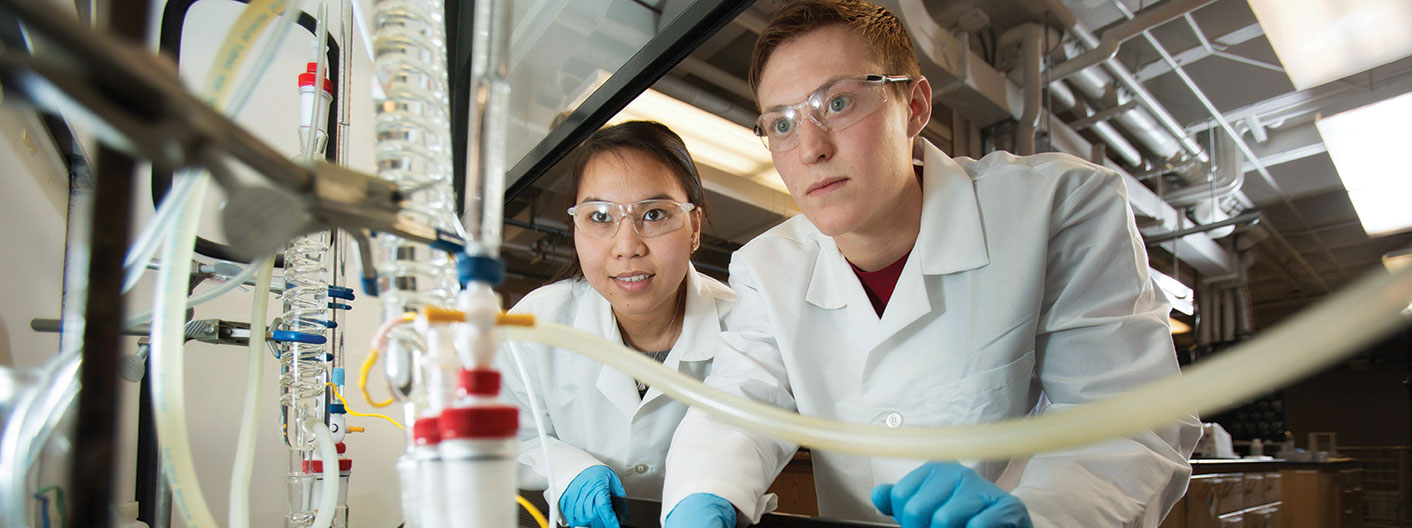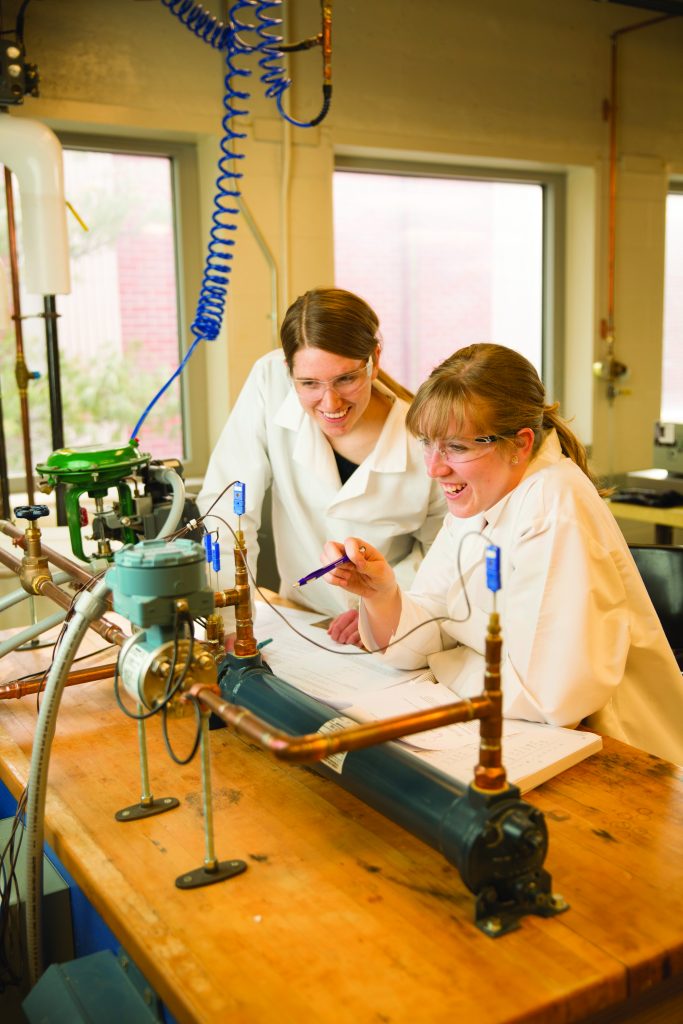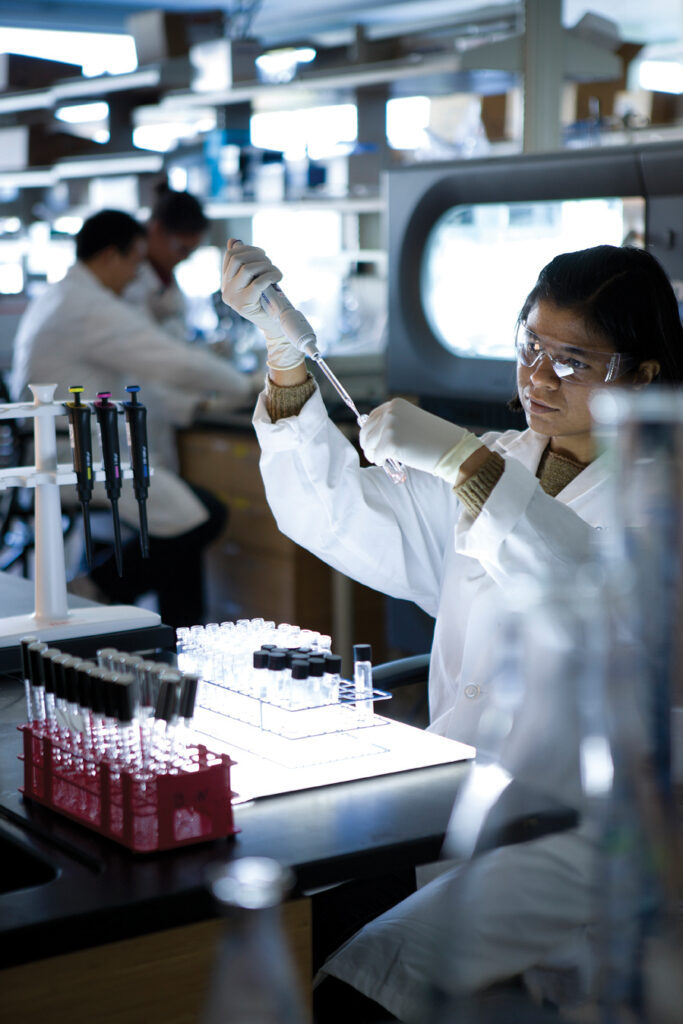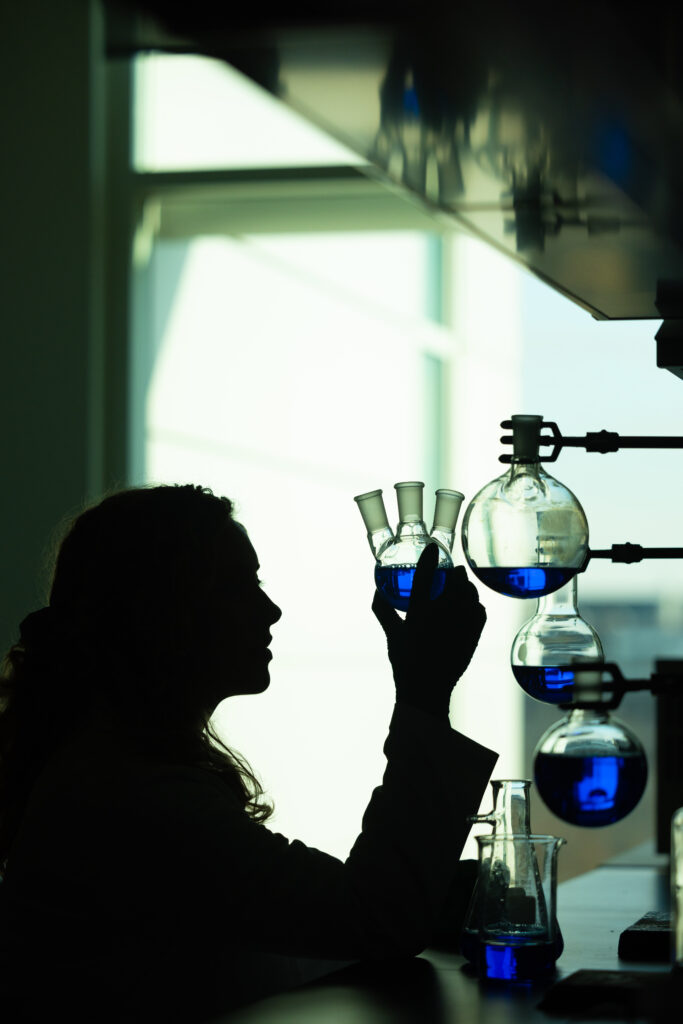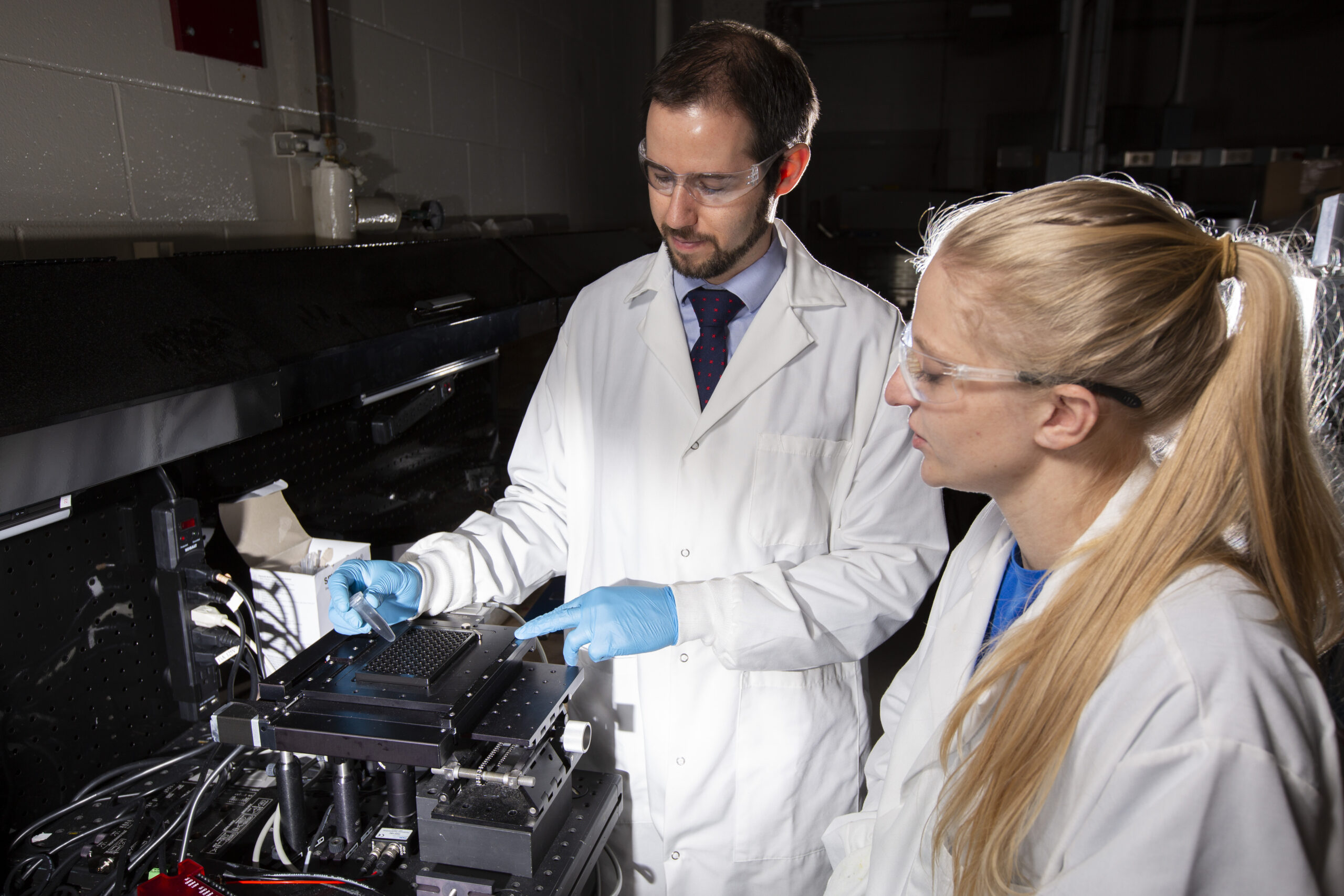Your Path In The Making
Whatever your goals are, your success is important to us! Our programs, labs, hands-on learning and facilities will give you a competitive advantage to address society’s greatest needs.
Flexible program: You can tailor your course work to meet your career goals and interests. Many of your core classes will be in chemical engineering, with others in areas of your choice.
- Interested in biorenewables and biobased products? Take additional classes in biomedical engineering, metabolic engineering and biocatalysis.
- Want to work with food products? Take classes in food processing, biochemistry and food chemistry.
- Interested in the chemical or petroleum industry? Take more basic science, math and polymers courses.
- Interested in microelectronics? Take surface science and solid-state physics.
Learning communities: When students work together and support each other, good things happen. We have created a strong social and academic environment for new students with our living/learning communities. Join a learning community and have a common schedule of classes, peer mentors, career exploration and the option of living on a dorm floor with other students in your major.
These are some examples of our classes:
- Chemical and Biological Engineering Laboratory II: Conduct experiments covering fundamental material and energy balances, momentum and energy transport operations and thermodynamics.
- Chemical Reaction Engineering: Learn about kinetics of chemical reactions and design homogeneous and heterogeneous chemical reactors.
- Transport Phenomena II: Study conduction and diffusion, convective heat and mass transfer, boiling and condensation, radiation and the design of heat exchange equipment.
- Material and Energy Balances: Examine chemical processes such as the physical behavior of gases, liquids and solids. Apply material and energy balances to these processes.
- Process and Plant Design: Investigate the synthesis of chemical engineering processes, equipment and plants. Determine cost estimation and feasibility analysis.

